
Rome, Italy, Nov 26, 2021 / 04:00 am (CNA).
Pope Francis left the Vatican on Thursday to attend a theatrical performance in Rome by students on how the pandemic has affected young people.
The pope met with the Italian Minister of Education Patrizio Bianchi and a group of young people from 41 countries at the International Pontifical College Maria Mater Ecclesiae in Rome on Nov. 25.
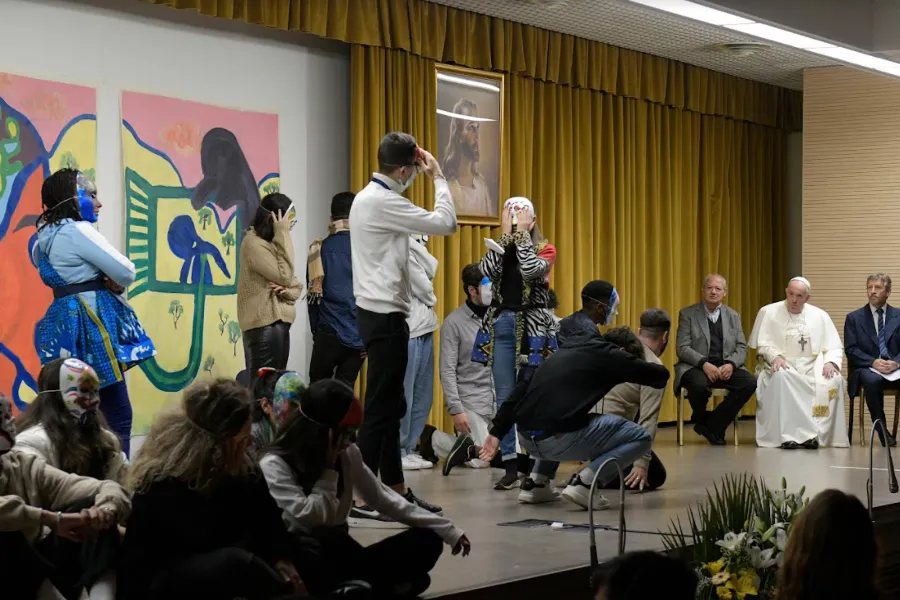
During the visit, the pope watched a show called “The faces of the pandemic,” in which performers covered their faces with decorated white masks to illustrate “the ‘face’ that the pandemic has left on young people,” according to a short statement from the Holy See press office.
Many of the students involved had participated in weekly virtual meetings organized by Scholas Occurrentes to share how they were coping with uncertainty and isolation when their schools were closed amid pandemic lockdowns.
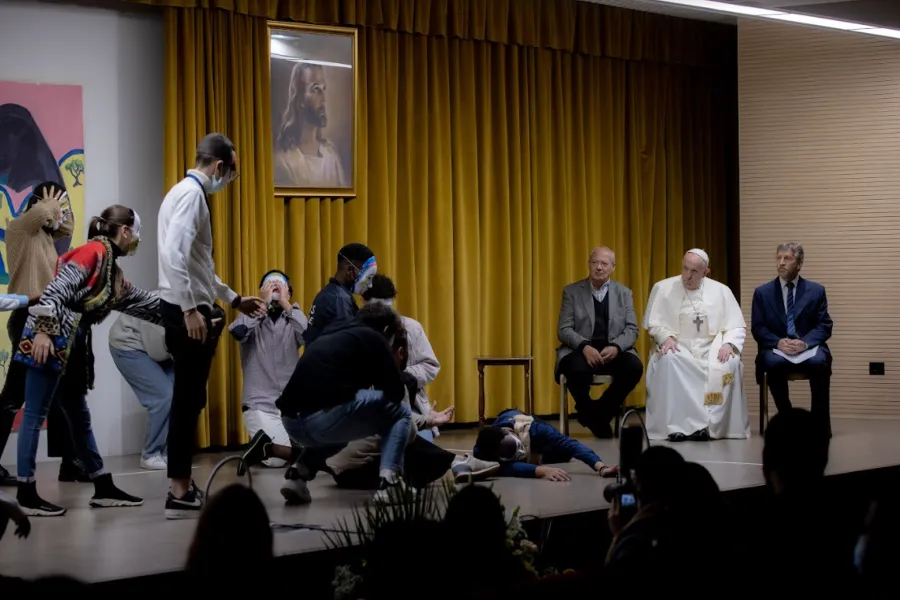
Pope Francis also listened to testimonies and answered a few questions from the young people.
A Rwandan boy whose parents fled to the Democratic Republic of the Congo during the 1994 genocide asked what the international community can do to help refugees.
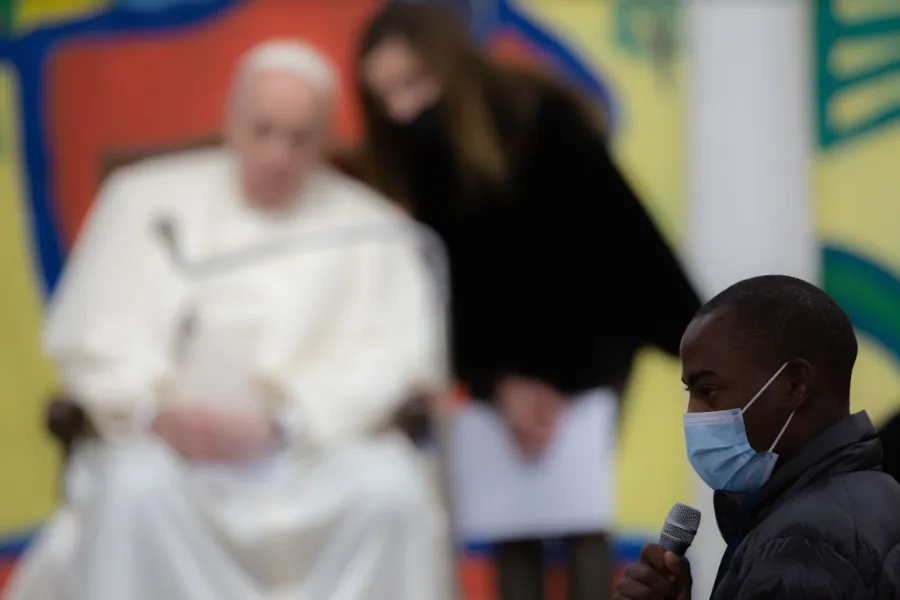
“Refugees who are fleeing have only one thing on their mind: leaving,” Francis said, according to Vatican News.
The pope underlined that refugees are not people who leave their country for economic reasons, but those who “escaped so that they could live.”
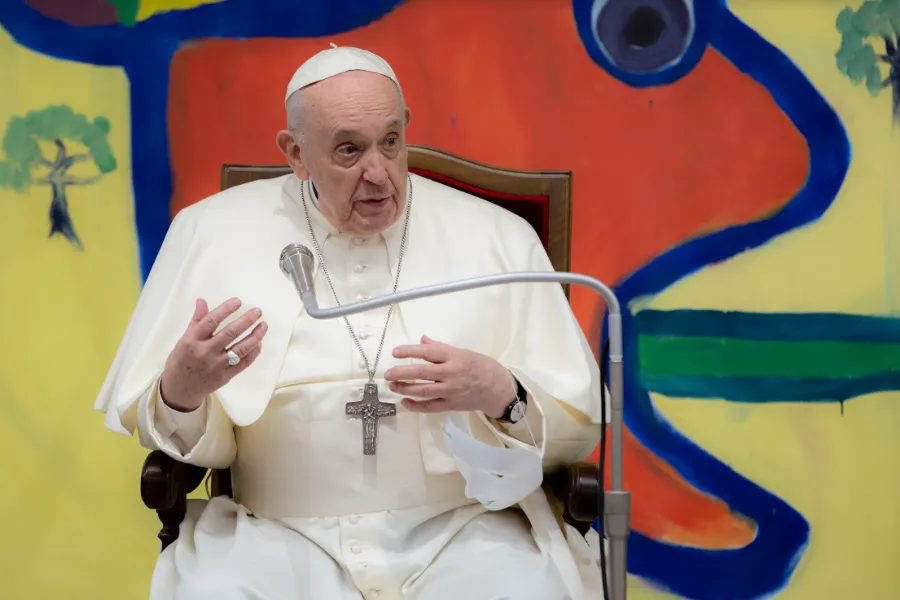
He asked the young people present to reflect on what lessons can be learned from the stories of refugees.
“Do you let your feelings grow so that you can discern them later, or do you cover them up?” the pope asked.
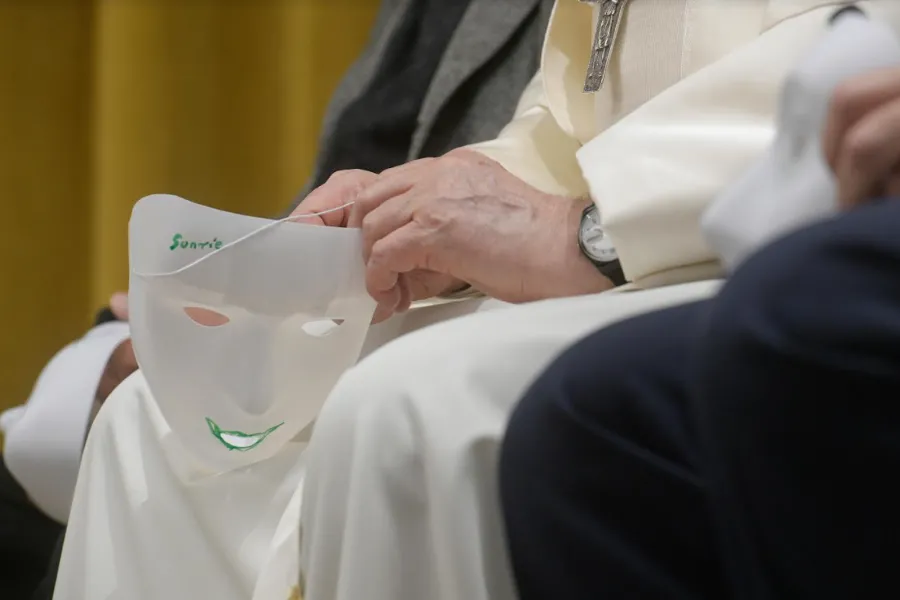
“If you let your feelings come out, you have the obligation to discern them and confront them,” he said.
The gathering was organized by Scholas Occurrentes, a pontifical foundation established in 2015 and charged with supporting poor and underserved communities around the world through education.
If you value the news and views Catholic World Report provides, please consider donating to support our efforts. Your contribution will help us continue to make CWR available to all readers worldwide for free, without a subscription. Thank you for your generosity!
Click here for more information on donating to CWR. Click here to sign up for our newsletter.





Leave a Reply